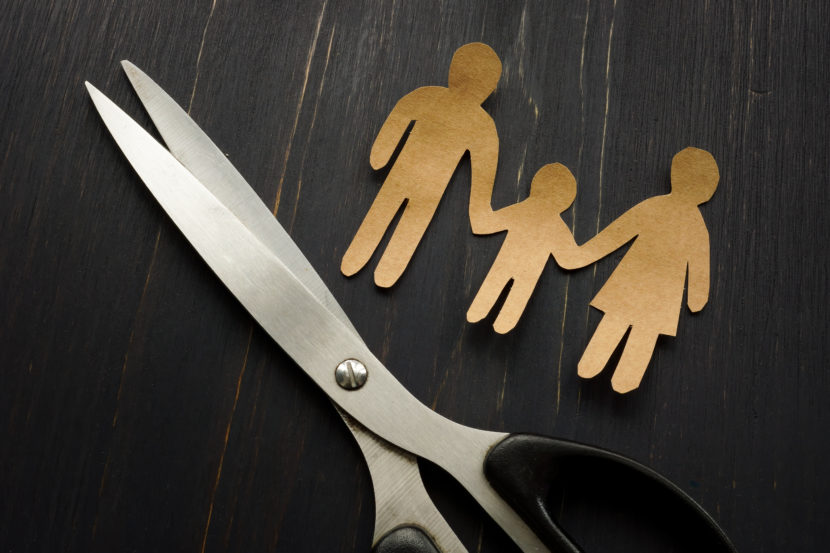During instances of suspected domestic abuse, and where children are involved, it is fundamental that courts seek to prioritise the best interests of the child. Where this is not the case, courts risk putting both victims of domestic abuse and their children at risk of trauma and further harm. Family courts must refrain from relying on ‘parental alienation’ as a justification to prioritise the rights of domestic abuse perpetrators to a family over the fundamental rights of children (Birchall, Choudhry, Nicholson-Pallett, 2018).
Defining parental alienation
‘Parental alienation’ is a term used across the globe to refer to acts that cause children to unjustifiably reject one of their parents, often their fathers (United Nations General Assembly, 2023). The term has roots in psychology and the archaic belief that it is common for one parent, often mothers, to wrongly convince their child to reject and distance themselves from their fathers (United Nations General Assembly, 2023). Parental alienation is therefore the accusation that a parent is unlawfully pushing a child to alienate themselves from their other parent.
The best interests of the child
Viewing these challenges through the lens of the child raises a particular subset of grave issues. Wrongful parental alienation rulings may expose children to physically or mentally abusive environments, undermining their resilience and impeding their development (United Nations Human Rights Office of the High Commissioner, 2023).
Courts often fail to consider how failed domestic abuse claims may aggravate existing abusive environments, forcing victims and their children to endure unrestrained contact with their abusers (United Nations General Assembly, 2023). Patterns of familial abuse often extend towards children; evidence in Canada has stated that over 40% of parental alienation cases involved domestic or child abuse (United Nations General Assembly, 2023).
Judicial biases towards the perception of mothers as potential manipulators also undermine the agency of the child (United Nations General Assembly, 2023). It is not uncommon for abusive fathers to be granted visitation or custody rights even where physical or sexual violence has been proven to have occurred (United Nations General Assembly, 2023). Courts are also generally reluctant to protect mothers who act to protect their child. In fact, mothers may even face retribution for violating custodial rights in order to protect their child (United Nations General Assembly, 2023).
Mothers may even be reluctant to share information about their abuse for fear that courts will punish them for parental alienation. In extreme cases reported in various countries across three continents, children have been removed from their carer and forced to revise with their perpetrator parent (United Nations General Assembly, 2023). In the United Kingdom, at least four children have been killed by abusers following court rulings granting their killers direct access to them in the last five years (Furst, 2019).
Inherent gender biases

Pervasive global gender biases and cultural norms have enabled the concept of parental alienation to survive the test of time. As a result, family court systems in different jurisdictions continue to expose victims of domestic abuse and their children to further harm by protecting joint custody in abuse cases (United Nations Human Rights Office of the High Commissioner, 2023). Analysis from the United Nations has highlighted the frequent ignorance of family courts towards credible evidence of domestic violence (United Nations Human Rights Office of the High Commissioner, 2023).
In particular, courts often overlook clear evidence of coercive control, physical and sexual abuse, intimate partner violence and other recorded harms (United Nations Human Rights Office of the High Commissioner, 2023). Family courts generally hold a default view that shared custody is preferred, placing a significant burden on victims to evidence their abuse and risk double-victimisation.
In countries such as Hungary, there is no obligation on courts to consider a history of violence in custody cases (United Nations General Assembly, 2023). Similarly, in Italy, 96% of separation cases involving domestic violence did not consider violence as relevant to child custody (United Nations General Assembly, 2023).
Though neutral by definition, parental alienation is disproportionately applied as a concept. Women are overwhelmingly the victims of parental alienation rulings, and this is exacerbated further for minorities who also fall victim of negative cultural and religious stereotypes (United Nations Human Rights Office of the High Commissioner, 2023). Women are inherently more likely to experience domestic violence, and simultaneously less likely to access services in place to support them (United Nations General Assembly, 2023).
Statistics from the United States of America (USA) indicate that 44% of mothers accused of abuse by their husbands see their custody rights revoked, relative to 28% of fathers in the same situation (United Nations General Assembly, 2023). An estimated 58,000 children in the USA are situated in dangerous environments as a result of such decisions (United Nations General Assembly, 2023). In Brazil, 66% of parental alienation cases accused women of attempting to wrongly convince their child to reject their fathers (United Nations General Assembly, 2023).
International legal standards
Children’s rights not to be subjected to harm, and to have their best interests expressed and protected are enshrined in numerous international statutes. Article 12 of the Convention on the Rights of the Child (CRC) forces member states to ensure children capable of forming their own views can express those views freely and be given due weight in judicial proceedings (United Nations General Assembly, 2023). Article 19 of the CRC protects children from all forms of physical or mental violence, as well as varied forms of injury, abuse, neglect and maltreatment (United Nations General Assembly, 2023).
Violence against women and children is also outlawed across numerous regional conventions including those created by the Council of Europe, European Union, Inter-American Court of Human Rights and African Union (United Nations General Assembly, 2023). The international policy arena also boasts guidance regulating international custody cases to protect the best interests of the child and prevent child abduction, such as the Hague Convention on the Civil Aspects of Child Abduction (United Nations General Assembly, 2023).
Far-reaching effects
Unfortunately, the views underpinning the application of parental alienation in family courts also exist outside of the courtroom. Evaluators who are responsible for reporting to family courts may observe domestic environments through biased lenses, overlooking obvious signs of abuse (United Nations Human Rights Office of the High Commissioner, 2023). The same applies to protective agencies responsible for safeguarding children’s rights and identifying risks.
In Brazil, lawyers have lobbied to ensure steps are not taken to mainstream victim-centric abuses in domestic abuse cases (United Nations General Assembly, 2023). This fear extends to policymakers and governments: the United Kingdom’s House of Lords has considered including the phrase “alienating behaviours” in its definition of domestic abuse, risking the perpetuating of the unsubstantiated narrative that mothers frequently look to manipulate their children (Women’s Aid, 2021).
Ways forward
In responding to parental alienation concerns it is crucial that the best interests of the child are prioritised. Examples from across the globe point to possible ways forward:
Systems must be put in place to encourage child participation in judicial processes. The Domestic Abuse Commissioner for England and Wales observes children through trauma-observed lenses to observe instances of coercive control. Neighbouring Scotland’s judicial system allows a Domestic Abuse Children’s Rights Officer to provide information about child abuse to a court without being ordered to do so.
Greater education must be provided to all professionals involved in child custody, domestic abuse and familial wellbeing cases (Birchall, Choudhry, Nicholson-Pallett, 2018). This education needs to be multi-dimensional: professionals interacting with domestic abuse and custody training must receive specialist training and the wider public must be sensitised to trigger behaviour change.
Also, systems must be created to define the approach to child custody in domestic abuse cases and review existing decisions. An oversight mechanism for judicial systems will limit the far-reaching power of courts and allow jurisdictions to ensure the best interests of the child are prioritised (Birchall, Choudhry, Nicholson-Pallett, 2018).
Finally, systems must be created to support victims of domestic abuse and their children, including specialist advisory services to empower victims to bring robust cases to court and circumvent the likelihood of parental alienation being utilised (Birchall, Choudhry, Nicholson-Pallett, 2018).

Humanium remains committed to safeguarding children’s rights, including their rights to protection and freedom from all forms of child abuse. Humanium believes in empowering children in realizing their rights, such as their right to participation and their right to protection from violence. If you wish to contribute to Humanium’s case, please consider volunteering, becoming a member or making a donation.
Written by Vanessa Cezarita Cordeiro
References:
Ailes, E., Furst, J. (2019, May 15). “Call for inquiry into abusive parents’ access to children.” Retrieved from BBC News, accessed on 11 September 2023.
Birchall, J., Choudhry, S., Nicholson-Pallett, P. (2018). “What about my right not to be abused? Domestic abuse, human rights and the family courts.” Retrieved from Queen Mary University of London and Women’s Aid, accessed on 11 September 2023.
Doughty, J., Maxwell, N., Slater, T. (n.d). “Professional responses to ‘parental alienation’: research-informed practice.” Retrieved from Journal of Social Welfare and Family Law, accessed on 11 September 2023.
Hunter, R., Burton, M., and Trinder, L. (2020, June). “Assessing risk of harm to children and parents in private law children cases.” Retrieved from Ministry of Justice, accessed on 8 September 2023.
United Nations General Assembly. (2023, April 13). “Custody, violence against women and violence against children.” Report of the Special Rapporteur on violence against women and girls, its causes and consequences. A/HRC/53/36. Retrieved from United Nations Human Rights Council, accessed 12 September 2023.
United Nations Human Rights Office of the High Commissioner. (2023, June 23). “Urgent reforms needed to protect women and children from violence in custody battles: UN expert.” Retrieved from United Nations Human Rights Office of the High Commissioner, accessed on 12 September 2023.
Women’s Aid. (2021, March 4). “Parental alienation: a dangerous and harmful concept.” Retrieved from Women’s Aid, accessed 10 September 2023.


